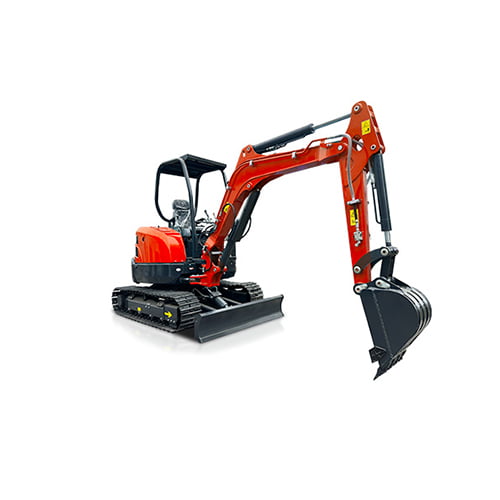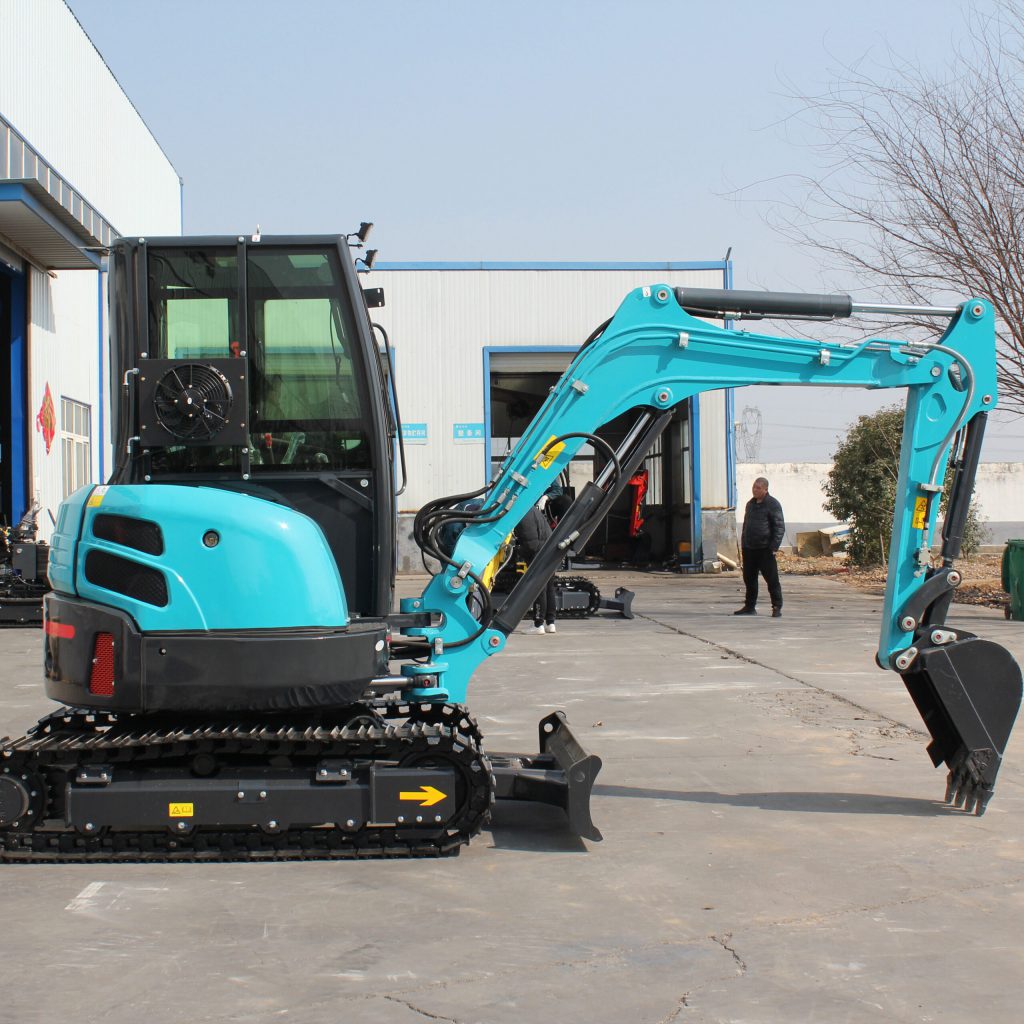Bienvenido a mi blog
Antes de sumergirnos en el contenido, me encantaría que te unieras a mí en mis plataformas de redes sociales, donde comparto más ideas, participo con la comunidad y publico actualizaciones. Así es como puedes conectar conmigo:
Facebook: https://www.facebook.com/profile.php?id=100072217509763
LinkedIn: https://www.linkedin.com/company/74949059/admin/dashboard/
YouTube:https://www.youtube.com/@tractormanufacturer-lc5qz
TikTok: https://www.tiktok.com/@tractormanufacturer
Empecemos nuestro viaje juntos. Espero que encuentres el contenido aquí perspicaz, atractivo y valioso.
Introducción
Excavators are essential machinery in construction, mining, and other heavy-duty industries. They offer versatility and efficiency, capable of handling a wide range of tasks from digging and grading to demolition and material handling. However, one of the most critical considerations when acquiring an excavator is understanding the costs involved. Excavator costs can vary significantly based on factors such as size, type, brand, and whether you choose to buy, rent, or lease. This blog aims to provide a comprehensive guide to excavator costs, helping you make informed decisions for your project.
Factores que influyen Excavadora Costs

Type and Size of the Excavator
The type and size of the excavator are among the most significant factors influencing its cost. Excavators come in various sizes, from mini excavators designed for small-scale projects to large excavators built for massive construction jobs. The size and capacity of the excavator directly affect its price, with larger models typically costing more due to their enhanced capabilities.
Types of Excavators:
- Miniexcavadoras: Weighing between 1 to 5 tons, these are ideal for small projects like landscaping, residential construction, and utility work. Their compact size allows them to operate in confined spaces, and they generally have lower operating costs.
- Standard Excavators: Weighing between 10 to 45 tons, these are the most commonly used excavators in the construction industry. They offer a balance between power and versatility, making them suitable for a wide range of tasks.
- Large Excavators: Weighing over 45 tons, these machines are used for heavy-duty tasks like mining, large-scale construction, and demolition. They are the most expensive due to their size and the heavy-duty work they perform.
Size and Cost Considerations:
- Miniexcavadoras: $20,000 to $90,000
- Standard Excavators: $100,000 to $300,000
- Large Excavators: $300,000 to $1 million+
Marca y modelo
The brand and model of the excavator also play a significant role in determining the cost. Well-known brands such as Caterpillar, Komatsu, John Deere, and Hitachi tend to have higher prices due to their reputation for quality, durability, and after-sales support. Newer models with advanced features like GPS, telematics, and improved fuel efficiency will also command higher prices compared to older models.
Popular Brands and Price Ranges:
- Caterpillar: Known for durability and reliability, typically priced at the higher end.
- Komatsu: Offers a balance of cost and performance, with mid-range pricing.
- John Deere: Often priced competitively, known for user-friendly designs.
- Hitachi: Known for advanced technology and efficiency, often priced similarly to Caterpillar.
New vs. Used Excavators
Another significant factor in excavator costs is whether you choose to purchase a new or used machine. New excavators come with the latest technology, warranties, and minimal wear and tear, but they also come with a higher price tag. Used excavators, on the other hand, offer cost savings but may require more maintenance and come with a shorter remaining lifespan.
Comparación de costes:
- New Excavators: $100,000 to $500,000 depending on size and features.
- Used Excavators: $25,000 to $200,000 depending on condition, age, and hours of use.
Additional Costs: Attachments and Maintenance
In addition to the base cost of the excavator, there are other expenses to consider, such as attachments and maintenance. Excavator attachments like buckets, augers, breakers, and grapples can significantly enhance the machine’s versatility but also add to the overall cost. Regular maintenance, including oil changes, filter replacements, and undercarriage inspections, is essential to keep the excavator in good working condition and can impact long-term costs.
Typical Additional Costs:
- Anexos: $1,000 to $10,000+ per attachment depending on type and brand.
- Annual Maintenance: $5,000 to $15,000 depending on usage and machine condition.
Table: Breakdown of Excavator Costs by Type and Factors
| Factor | Mini Excavators (1-5 tons) | Standard Excavators (10-45 tons) | Large Excavators (45+ tons) |
|---|---|---|---|
| Base Price (New) | $20,000 – $90,000 | $100,000 – $300,000 | $300,000 – $1,000,000+ |
| Base Price (Used) | $15,000 – $50,000 | $50,000 – $200,000 | $150,000 – $600,000 |
| Popular Brands | Qilu, Komatsu | Caterpillar, John Deere | Caterpillar, Hitachi |
| Archivos adjuntos | $1,000 – $5,000+ | $2,000 – $8,000+ | $5,000 – $10,000+ |
| Annual Maintenance Costs | $2,000 – $5,000 | $5,000 – $10,000 | $10,000 – $15,000+ |
| Resale Value (Depreciation) | Moderado | Alta | Alta |
Leasing vs. Renting Excavadoras

Leasing Excavators: Pros and Cons
Leasing an excavator can be a cost-effective solution for companies that need the equipment for an extended period but want to avoid the high upfront costs of purchasing. Leasing typically involves lower monthly payments, and the equipment can be upgraded at the end of the lease term. However, leasing can end up costing more in the long run if the equipment is used extensively.
Pros of Leasing:
- Lower Upfront Costs: Easier on cash flow compared to buying outright.
- Upgrade Options: Flexibility to upgrade to newer models at the end of the lease.
- Tax Benefits: Lease payments may be tax-deductible as a business expense.
Cons of Leasing:
- Higher Long-Term Costs: Leasing can be more expensive over time if the equipment is used heavily.
- Limited Ownership: You do not own the equipment at the end of the lease term.
Renting Excavators: Pros and Cons
Renting an excavator is ideal for short-term projects or when the equipment is only needed occasionally. Renting offers the flexibility to access the latest models without the responsibilities of ownership, such as maintenance and storage. However, rental costs can add up quickly, making it an expensive option for long-term use.
Pros of Renting:
- No Maintenance Costs: Rental companies typically handle all maintenance and repairs.
- Access to Latest Models: Ability to rent the newest models with advanced features.
- Flexibility: Rent only when needed, reducing idle equipment costs.
Cons of Renting:
- Higher Daily/Weekly Costs: Renting can be more expensive than owning if used frequently.
- Availability Issues: Desired models or sizes may not always be available when needed.
Conclusión
Understanding excavator costs is crucial for making informed decisions that align with your project’s budget and needs. Whether you choose to buy, lease, or rent, consider factors such as the type and size of the excavator, brand reputation, additional costs for attachments and maintenance, and the duration of use. By carefully evaluating these aspects, you can select the most cost-effective solution that enhances your project’s efficiency and profitability.
PREGUNTAS FRECUENTES
What factors most affect excavator costs?
Excavator costs are influenced by factors such as the type and size of the machine, whether it’s new or used, the brand and model, and additional expenses like attachments and maintenance.
How do excavator costs vary between new and used machines?
New excavators generally cost more, ranging from $100,000 to over $1 million, while used excavators can cost significantly less, typically between $25,000 and $200,000, depending on their condition and hours of use.
Are there ongoing expenses that impact excavator costs?
Yes, ongoing expenses such as maintenance, repairs, fuel, and insurance can add to the total excavator costs over its lifespan, typically amounting to several thousand dollars annually.
How does the brand of an excavator influence its costs?
Well-known brands like Caterpillar, Komatsu, and John Deere tend to have higher excavator costs due to their reputation for quality, durability, and after-sales support.
What are the differences in excavator costs between renting and buying?
Renting an excavator can be cost-effective for short-term use, with daily rates typically ranging from $200 to $1,000, while buying involves a larger upfront investment but may be more economical for long-term use.
How do attachments impact overall excavator costs?
Attachments such as buckets, augers, and hydraulic hammers can significantly increase excavator costs, adding anywhere from $1,000 to over $10,000 depending on the type and brand.
What are the hidden costs associated with excavators?
Hidden excavator costs can include delivery fees, operator training, permits, insurance, and downtime during repairs or maintenance.
How can I reduce excavator costs on a construction project?
To reduce excavator costs, consider renting or leasing, purchasing used equipment, regularly maintaining the machine to prevent costly repairs, and choosing the right size excavator for the job.
What are the long-term costs associated with owning an excavator?
Long-term excavator costs include regular maintenance, fuel, insurance, replacement of worn-out parts, and potential resale value depreciation.
How do excavator costs differ between mini, standard, and large excavators?
Mini excavators generally have lower costs, ranging from $20,000 to $90,000, standard excavators cost between $100,000 and $300,000, while large excavators can exceed $1 million depending on features and capabilities.




